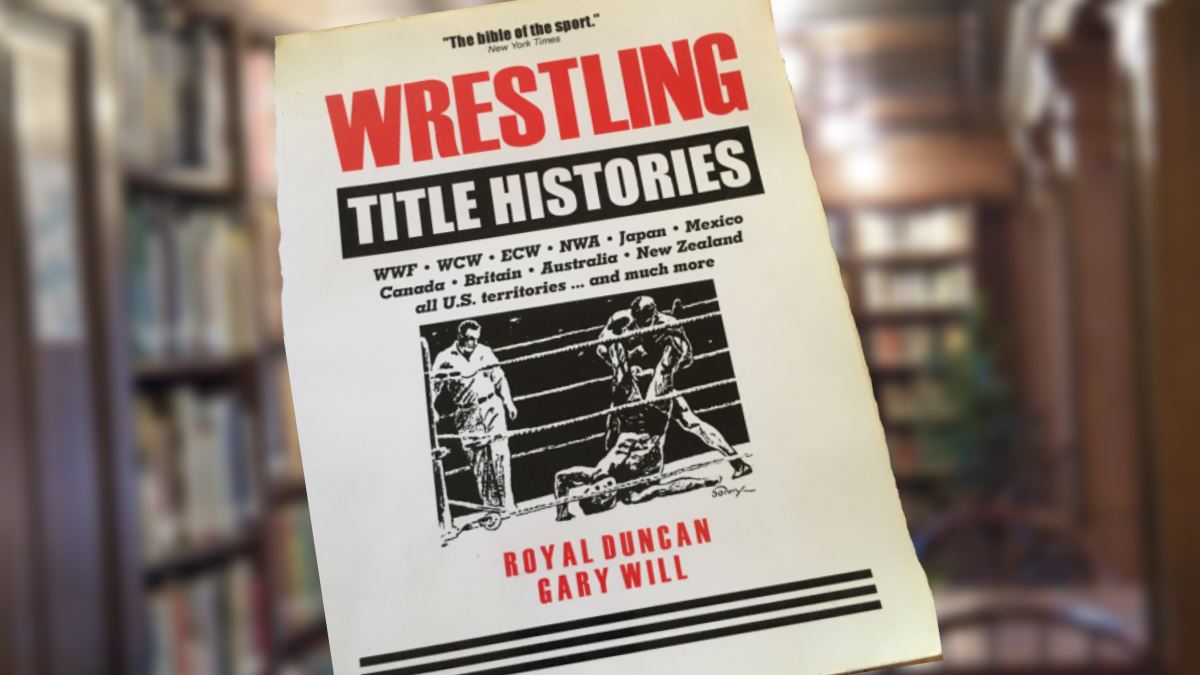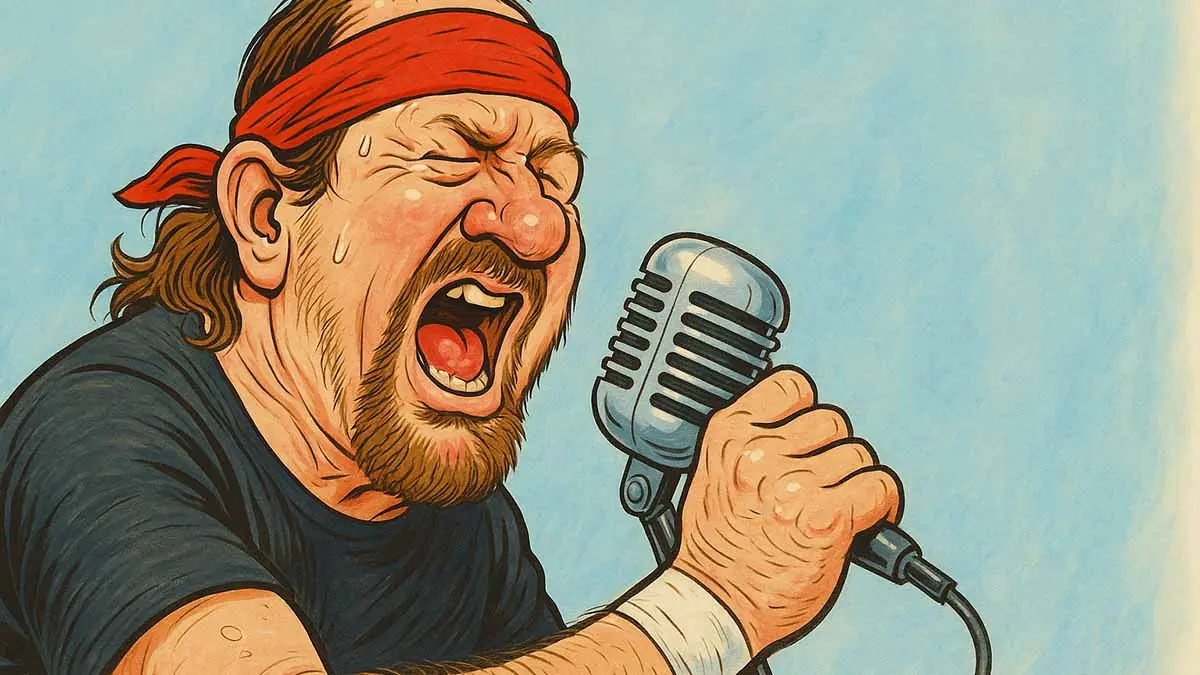Wrestling Title Histories an essential resource
Lou Thesz. Bruno Sammartino. Dory Funk Jr. Jack Brisco. Verne Gagne. Harley Race. Ric Flair. All the best in the business at their respective times. All legends. All world champions.
David Arquette, husband to Friends star Courtney Cox, pitchman for 1-800 Collect… And WCW World Champion.
What’s wrong with this picture?
Wrestling may be experiencing a boom business period and it may be the subject of unparalleled coverage in the mainstream media and it may be enjoying unmatched levels of popularity. But….
Never before has the world titles meant so little. Today, the world title is little more than a shoe box of old newspaper clippings and faded memories of better days gone by.
A point that is driven home in spades by Gary Will and Royal Duncan, co-authors of Wrestling Title Histories, Fourth Edition.
Wrestling Title Histories is the authoritative book on the history of wrestling titles. It’s an unbelievable work, documenting and listing the history behind virtually every wrestling title in the world from the late 1800s to today.
But it’s much more than a just a book of lists. It’s a refreshing commentary on the history of pro wrestling.
Will demonstrates just how little the world title means these days, writing in the introduction that the “WWF (World) title changed hands more times in 1999 than it did in the 1960s and ’70s combined. The WCW title changed hands almost as many times in 1999 as the NWA title did in the 20 years from 1960-80.”
A staggering and sobering statistic to say the least.
Which makes the sheer magnitude of what Will and Duncan have accomplished with this book all the more amazing. They’ve gone to painstaking lengths to provide an accurate record and chronological history behind virtually every title in pro wrestling history.
From the national promotions, to every old territory in the U.S and Canada; from the Tunney’s Toronto office to Jim Crockett’s Mid-Atlantic promotion, every single major territory is accounted for.
And if that’s not enough, Will and Duncan took on the Herculean task of listing the champions from promotions outside of North America. From such exotic locales as Argentina, New Zealand and Africa, Will and Duncan leave no stone unturned. For an international wrestling junkie like myself, I found the listings of title holders in Japan and Mexico to be a God-send.
The difficulty of their task can not be understated.
Will addresses the hurdles they had to sidestep in the introduction when he writes “Pro wrestling has several strikes against it that make it impossible to make this book error free – concocted stories in various media, performers and promoters wager to invent self-serving histories, the different ways to interpret results as simple as ‘Smith beat Jones to win the title’ not to mention reversed decisions and all the other tools in a promoter’s toolbox to have their champion lose but hold on to the belt.”
This book, to a large degree, helps alleviate that problem. While it’s not a record on the history of the sport per se, it does provide an accurate account of its title holders, giving us one substantial piece of the giant jigsaw puzzle that is pro wrestling history.
Will and Duncan were diligent in their research. They combed through thousands of newspaper clippings, newsletters, old magazines, talked to promoters, ex-wrestlers and historians. Sources were cross referenced to the point of making this just about the most accurate listing of champions you could have.
This book is a miracle. It’s significance should not be understated in light of what has been offered by promoters and mainstream media as wrestling history.
Wrestling history has always been a murky subject. For the longest time, it was the wrestling promoters who wrote the history, duping unsuspecting media types into believing their version of the truth. Because of this, there’s never been an accurate record of wrestling’s true history.
Will proves himself a student of wrestling, and not easily fooled. He openly refutes the revisionist version of pro wrestling history put forth by Vince McMahon and the WWF hype machine. He astutely points out the erroneous history that wrestling was a “small-time entertainment playing some-filled legion halls… until the 1980s when Vince McMahon decided that wrestling would be openly presented as entertainment.”
Also debunked is the popular notion that “Ted Turner, seeing that the popularity of the WWF product, started his own promotion and used his big bucks to lure the top names away from the WWF.”
Amen, brother.
Talking about the poor historical record of pro wrestling, Will writes, “The poor historical record has a self-perpetuating effect because the lack of documentation makes it easier for wrestlers and promoters to give distorted accounts of the history that get passed along by reports and writers who don’t know any better.”
There’s a cynical edge to this book that I clearly identify with. Will continues, “We’ve been left with a cardboard history of pro wrestling, much of which is widely believed and repeated frequently by media outlets which don’t seem to be concerned about accuracy when the subject is something they see as being as frivolous as pro wrestling.”
Will clearly has an understanding of the wrestling business and how it works. He accounts for the systematic and deliberate devaluing of the world title by writing “with the injury rates as high as it is now, it would be foolhardy to make an entire promotion center around a single performer to the degree that was possible during Hulk Hogan’s five-year reign in the mid-1980s.”
Wrestling Title Histories, Fourth Edition is the first new edition in five years with 60 per cent more listings than the third edition. This newest edition comes at the perfect time, as my copy of the old book is falling part. I use it so much that the pages have been dog-eared and flipped through to death. It is an invaluable resource material for this reporter and should be a required text for any self-respecting journalist covering pro wrestling.
That’s why you shouldn’t be scared off by the $78 CDN tag price. It’s a landmark book that is well worth the price.
Simply put, the 441 page opus is, without a doubt, the single greatest wrestling resource in the entire world. Period. Exclamation point!




